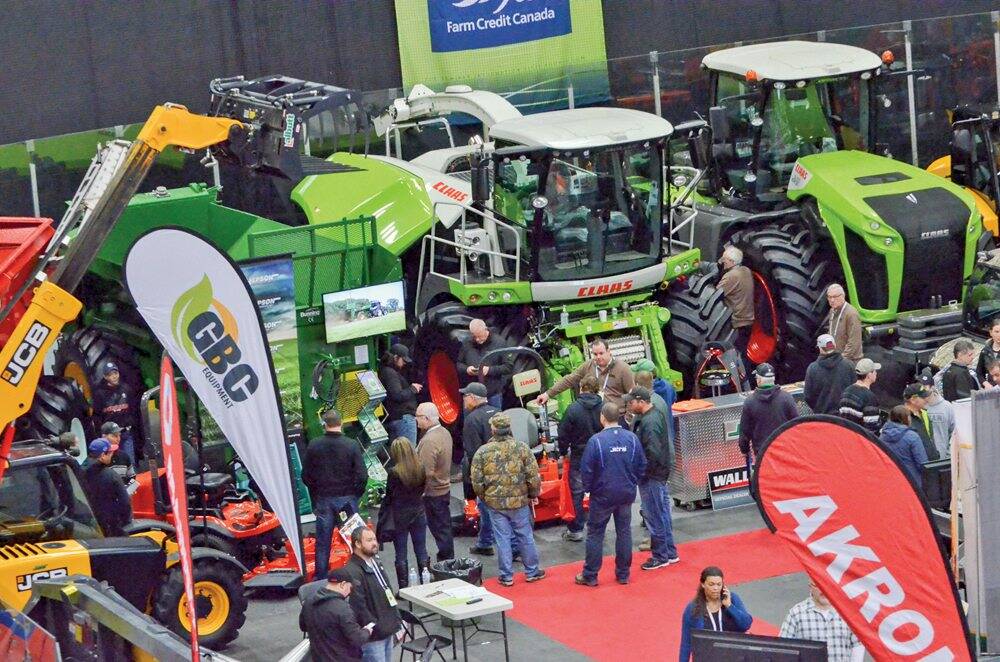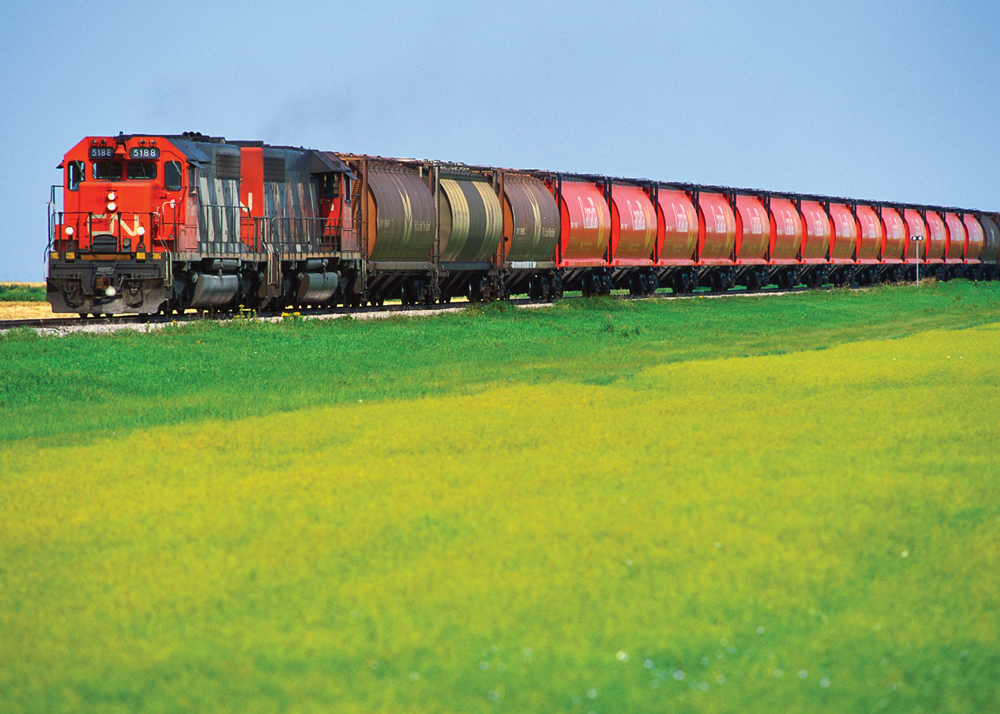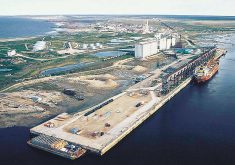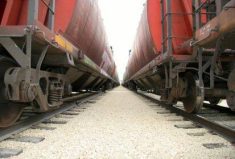[UPDATED: Aug. 16, 2022] The Western Grain Elevator Association (WGEA) says the latest CN and CP grain plans are long on excuses and short on solutions.
According to Wade Sobkowich, WGEA executive director, the railways are not held accountable for meeting their own targets, and that is a problem.
“I would go so far as to argue they can set false expectations without proper discipline in place.”
Read Also

Manitoba Ag Days 2026: Local businesses gear up for Brandon farm show
Most of agriculture is seemingly at Manitoba Ag Days each January: Manitoba agribusinesses and farm groups look forward to connecting with farmers at the 2026 show.
Sobkowich gave an example from CN’s 2021-22 grain plan in which it said it would provide 5,350 rail cars per week. Shipper demand for the week of February 13 to 20 was only 1,240 rail cars — lower than expected because of the drought last year. But CN could only muster 550 rail cars for that week. Examples such as that one are commonplace, he said.
[FROM THE ‘BETWEEN THE ROWS’ PODCAST] Wade Sobkowich on the 2021-2022 grain shipping season and some of the shortcomings in the railways’ business model. To hear the full episode, click here.
To be fair, there were extenuating circumstances that contributed to those poor results. A flood in southern British Columbia shut down CN’s main line for three weeks in November 2021. That created massive backlogs. Staff were also laid off in anticipation of the smaller, drought-affected crop, and that was exacerbated when huge numbers of employees came down with the COVID-19 Omicron virus.
“These are factors that everybody needs to remember,” said David Przednowek, Assistant Vice President of Grain at CN. “You have to have all the ingredients in place to be able to hit those numbers. And those were some pretty massive impacts on the supply chain this past year.”
That’s precisely the problem, according to Sobkowich.
“(The CN plan) lacks meaningful capacity and service performance information,” he said. “It seems as though CN spends a lot of time talking about how many things can and will go wrong throughout the course of the year. And then their plan reinforces the fact that when those things happen, it won’t be CN’s fault. The principal purpose of the plan almost seems to be to condition the industry for service failures.”
Sobkowich was a little more charitable with CP’s plan.
“It is marginally more positive than CN’s in that the capacity numbers are less confusing and there is less of an emphasis on the ways/reasons it may not meet them,” he said.
Canada’s Grain Monitor, Mark Hemmes, shares some of Sobkowich’s concerns.
“CN, particularly, it’s very focused on putting on a series of caveats to what they were offering,” Hemmes said, adding that both reports largely adhere to the same structure and message used in previous years.
“Most notably, there wasn’t really an increase in the amount of capacity that’s going to be offered,” said Hemmes.
CP plans to supply 6,000 grain hopper cars a week outside of the winter months, compared to CN’s 7,800 cars. During the winter months, CP plans to supply 4,350 grain hopper cars each week, compared to CN’s 6,250 hopper cars. Those numbers are unchanged from 2021-22.
However, Hemmes sees positives in the way both railways have committed to increasing crews. CN has already added 850 new employees, most of whom are conductors, and said it plans to hire another 500 in the coming months. CP is planning to hire 2,500 employees in 2022 and has hired more than 1,000 operations personnel already this year.
In terms of the rail providers being able to handle a normal-sized crop after shrinking capacity so drastically last season, Hemmes is more optimistic than he was three months ago. In May, he wondered whether the rail companies would be able to recover from last season’s disastrous performance.
“If we have what equates to a normal crop this fall, there are a lot of people concerned that the railways won’t be prepared to move it,” he told the Co-operator then. Now he seems confident that the railways will be able to handle the closer-to-normal volumes expected this year.
“I think we’re going to be a lot better than what we saw last year,” he said, following it with a cautious, “knock on wood!”
The railways said they are well-positioned to deliver.
“We’ve got the resources in place to move that crop over the course of the crop year. We’ve set the table with the resources that we have to be able to achieve those levels that we’ve laid out in the grain plan,” Przednowek said.
For Sobkowich, uncertainty and lack of accountability from rail providers is still a problem and the solution is enforced regulation.
“The railways are only behaving in a predictable way under the current regulatory and competitive environment,” he said.
“Both railways want 100 per cent asset utilization. They want their crews used 100 per cent of the time around the calendar year. Same thing with their locomotives and their rail cars.
“In any business, what sort of company can enjoy 100 per cent asset utilization? I mean, a farmer has to have a combine that he uses for three or four weeks out of the year, yet he has to keep it for the entire year.”
Sobkowich said he’d like to see the railways mandated to be properly resourced for the peaks.
“Sometimes that means having staff that you’re paying that aren’t necessarily working, but that’s the price of doing business,” he said.
Since no business will voluntarily expose itself to that risk, Sobkowich says the change has to come from above.
“We require the government to hold both CN and CP accountable for meeting the numbers they themselves produce; otherwise there is no real value in them.”
*Update: Quotes were updated to correctly attribute to David Przednowek.
















